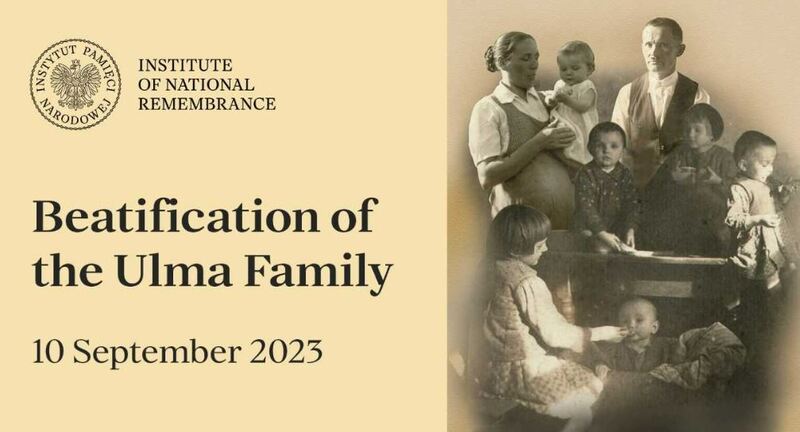Who were Józef and Wiktoria Ulma? Why did Pope Francis approve the decree of beatification of the entire family?
See unique photographs of the daily life of the Ulma family of Markowa. It was a life that was brutally terminated by a massacre organized by German gendarmes. Many of these photographs were taken by Józef Ulma himself, who documented the life of his family and neighbors.
Learn about the Polish “holiness found in our next-door neighbours”. The head of the Catholic Church - Pope Francis – has approved the decree on the beatification of the Polish Ulma family from Markowa. The beatification of an entire family, including their unborn child, is an unprecedented event. The date assigned to the Ulma family on the liturgical calendar will be July 7th - Wiktoria and Józef Ulma’s wedding day - thus emphasizing the value family represents. The Ulma family joined the procession of martyrs, becoming a seed that yields a bountiful harvest. It is a harvest of hope in the final victory of good over evil, a model for future generations, a warning of what can happen when people are stripped of their human dignity.
The film, presenting Józef and Wiktoria Ulma and their children, consists of three parts: family life in Markowa is presented through the eyes of Wiktoria Ulma, a mother and wife who speaks warmly about her husband; the historical background (German occupation marked by brutality and mass terror) and the beatification itself.
The soundtrack also includes three elements: choral music, a traditional melody from the village of Markowa performed by the "Markowianie" Folk Band, and a piece composed especially for the spot by Michał Aftyka, to capture the horror of the occupation.
The short film, prepared by the IPN Office of International Cooperation is available in three language versions: Polish, English and Spanish.
English:
Spanish:
Polish:
